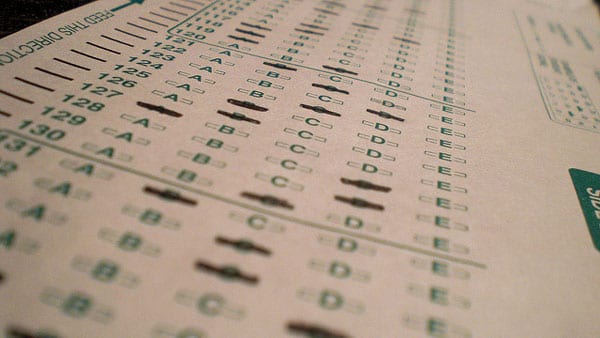
March 12, 2019; New York Times
There are times when you are not sure whether to be outraged or to cry, and the real answer is both. Such is the case with a bombshell federal indictment involving a host of schools: Georgetown; Stanford; the University of California, Los Angeles; University of San Diego; University of Southern California; University of Texas, Austin; Wake Forest; and Yale. Two of these are public universities; the remainder are private nonprofit schools.
The account in the New York Times begins:
A teenage girl who did not play soccer magically became a star soccer recruit at Yale. Cost to her parents: $1.2 million.
A high school boy eager to enroll at the University of Southern California was falsely deemed to have a learning disability so he could take his standardized test with a complicit proctor who would make sure he got the right score. Cost to his parents: at least $50,000.
A student with no experience rowing won a spot on the U.S.C. crew team after a photograph of another person in a boat was submitted as evidence of her prowess. Her parents wired $200,000 into a special account.
Sign up for our free newsletters
Subscribe to NPQ's newsletters to have our top stories delivered directly to your inbox.
By signing up, you agree to our privacy policy and terms of use, and to receive messages from NPQ and our partners.
Facilitating many of these admissions was another nonprofit, the Key Worldwide Foundation, based in Newport Beach, California, which served as a conduit to “help students cheat on their standardized tests, and to pay bribes to the coaches who could get them into college with fake athletic credentials.” It also allowed “parents to funnel money into an account without having to pay any federal taxes,” reports the Times.
This is not a case of a “few bad apples.” It involves 50 people in six states. Among those implicated in the indictment are “top college athletic coaches, who were accused of accepting millions of dollars to help admit undeserving students to a wide variety of colleges, from the University of Texas at Austin to Wake Forest and Georgetown, by suggesting they were top athletes.”
And, of course, the indictment only touches on the illegal activities. Meanwhile, the legal system of ensuring the preservation of elite power and privilege carries on. As Rainesford Stauffer reminds us in a New York Times op-ed, a “legal version of purchasing an advantage happens every college application season and that there’s an entire industry supporting it, including a standardized test prep industry, worth around $840 million, which involves parents forking over up to $200 an hour for Ivy League tutors tasked with increasing their children’s’ scores. That doesn’t include application essay writers, who coach students on what to write about, edit their writing and, in some cases, write for them. It doesn’t include college coaching firms, which charge up to $40,000 to strategize an applicant’s entire process.” And of course, Stauffer adds, there are also those “donations made to schools by the parents of legacy students [that] can essentially buy acceptance letters.” (For example, Jared Kushner’s father helped ease his son’s admission to Harvard many years ago with a timely $2.5 million donation).
Earlier this week, at NPQ, we reported on a talk given this month by Anand Giridharadas. In that talk, Giridharadas noted that his book, Winners Take All, was not first and foremost an economic critique but a cultural one—a culture in which values of democracy are subordinated to wealth—to the plutocracy. Speaking to Vice about the admissions scandal, Giridharadas himself noted the similarities between the actions of the megadonors he writes about and the actions of the parents buying admissions. As Giridharadas notes, a danger with giving is it can serve as “a mask that allows a tremendous amount of taking to take place. The taking of power, taking opportunities from other people…it’s all still taking.”
The question that remains is whether we will take this cultural crisis at the heart of our sector seriously. Or, will the latest college admission scandal be dismissed, once again, as just a few bad apples in an otherwise functional system?—Steve Dubb










